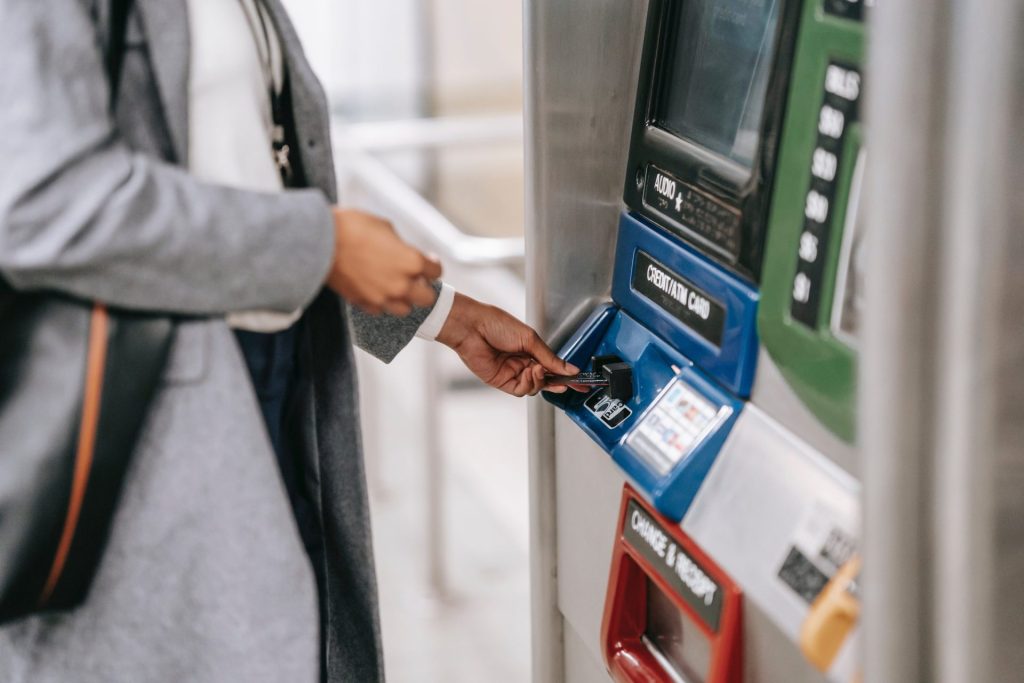BLOGS
What You Need To Know About The Anti-Money Laundering Act
The Anti-Money Laundering Act (AMLA) has been a recurring issue in many news stories. It’s no secret that there’s an increasing number of illegal and irregular financial activities being carried out almost in any country. Learn about compliance requirements, criminal offenses, and other related information regarding the Anti-Money Laundering Act in the Philippines.
The Philippines is a beautiful country with a fascinating culture and some of Asia’s friendliest and most generous people. The country is also one of the fastest-growing economies in Asia, meaning there are plenty of opportunities for anyone to start or expand a business and make money.
However, there are still challenges facing the country’s economy that need to be addressed if it continues its meteoric rise: money laundering is still an issue despite many efforts by concerned government agencies.
This article will discuss possible solutions for complying with money laundering laws and staying on top of the ever-changing regulations around this issue.
Anti-Money Laundering Act in the Philippines
The Anti-Money Laundering Act of 2001, known as the Republic Act No. 9160, is a law that aims to prevent the laundering of money earned through corruption, criminal activities, and terrorism. The law also seeks to combat terrorism and related crimes such as kidnapping for ransom, extortion, smuggling, human trafficking, and piracy.
The law is meant to protect the privacy of bank account holders, preventing the Philippines from becoming a money-laundering site for criminals. The law also protects financial institutions from being used by criminals to launder their ill-gotten wealth and funds.

Under the Anti-Money Laundering Act, select organizations must comply with anti-money laundering regulations in the Philippines.
- Financial institutions such as banks and/or non-banks and all other institutions regulated by the Bangko Sentral ng Pilipinas (BSP)
- Insurance institutions regulated by the Insurance Commission
- Securities dealers, brokers, sales associates, investment houses, and similar entities regulated by the Securities and Exchange Commission.
The law was enacted by the Philippine Twelfth Congress on October 17, 2001, and signed into law on September 29, 2001, by former President Gloria Macapagal-Arroyo.
Anti-Money Laundering Council (AMLC)
The Anti-Money Laundering Council is an independent, quasi-judicial body created by Republic Act 9160 and tasked to monitor, investigate and prosecute money laundering cases in the Philippines.
The AMLC comprises three members: The Governor of the Bangko Sentral ng Pilipinas (BSP) as chairman, the Commissioner of the Insurance Commission, and the Chairman of the Securities and Exchange Commission as members.
To ensure that the AMLC is properly organized and staffed, it has been authorized to establish a secretariat. It will be headed by an Executive Director, who will be appointed for five years. The Executive Director will have these qualifications:
- Member of the Philippine Bar
- Minimum of 35 years old
- Good moral standing
All Secretariat members must have been employed by the Insurance Commission or the Securities and Exchange Commission for five years and hold full-time permanent positions at the BSP.
Jurisdiction and Penalties
The regional trial courts will have jurisdiction over money-laundering cases, but the Sandiganbayan will hear cases involving public officers who conspire with private individuals.
The penalties for money laundering include the following:
- Section 4(a) – Imprisonment from 7 to 14 years; fine of not less than Php3M but not exceeding twice the amount involved
- Section 4(b) – Imprisonment from 4 to 7 years; fine of not less than Php3M
- Section 4(c) – Imprisonment of 6 to 4 years; fine of not less than Php100k
- Failure to keep records – Imprisonment of 6 to 12 months; fine of not less than Php100k but not exceeding Php500k
- Malicious Reporting – Imprisonment of 6 months to 4 years; fine of not less than Php100k but not exceeding Php500k (Subject to court discretion)
- Breach of Confidentiality – Imprisonment of 3 to 8 years; fine of not less than Php500k but not exceeding Php1M

5 tips to comply with the AMLA in the Philippines
Keep up with the latest financial regulations
It’s important to keep up with the latest policies set by financial regulators in the Philippines. The BSP and SECC are the main financial regulators in the country.
The BSP is responsible for the country’s monetary policy, including setting interest rates and managing foreign exchange reserves. The SEC is tasked with regulating all public companies and protecting investors from fraud or other forms of abuse. Both agencies have recently updated their websites, so check them regularly!
Regularly review customer transactions
It is important to monitor your client’s financial activity regularly to ensure there are no irregular transactions. This will help you avoid the possibility of money laundering.
The first step is to ensure that you are familiar with the types of transactions that may indicate possible money laundering. For example, if a client suddenly starts making large purchases or sending large amounts of money overseas, this could indicate that they are engaging in illegal activities such as tax evasion or drug trafficking.
Another thing to watch out for is a sudden behavior change. If your client starts paying with cash more often than usual or stops using their credit card altogether, it could indicate suspicious activity.
Finally, keep an eye on deposits made into accounts by other people or entities (such as family members). If these deposits happen frequently and are unusually large, they could be an attempt at laundering money through another person’s bank account or business account instead of directly passing it through yours.
You should also be aware of changes in your client’s business model or operations. If they suddenly start accepting payments from countries they didn’t before, this could signal that something suspicious is going on.
Keep good records of your business transactions
If you’re running a company, it’s essential to keep detailed records. This is especially true if you’re doing business with clients or vendors in other countries.
It’s easy for money laundering to happen when there isn’t enough transparency between the parties involved in a transaction. That’s why keeping detailed records of all transactions can help ensure that your company operates within the bounds of the law.
You’ll also want to make sure that any payments made by your company are being reported correctly on tax forms and other documents. In addition, it will be helpful if you can provide proof of what happened during each transaction, such as an invoice or receipt showing that your company received payment from another entity.
Screen customers and their transactions
Screening customers and transactions to avoid money laundering is a key part of your risk management program. It’s also one of the most important things you can do to ensure that you’re operating in accordance with applicable regulations and laws, as well as to protect your business from the negative reputational consequences of being associated with money laundering or other criminal activity.

Comply with the Data Privacy Act
The Data Privacy Act is a set of rules that govern how businesses use data, and it’s an important part of preventing money laundering.
It aims to protect consumers’ personal information from being used by companies and other entities for their gain. It also helps ensure that people control their data, which means they can choose how it’s used and who has access to it.
The purpose of this act is three-fold:
1) To protect consumers from identity theft and fraud, as well as other forms of abuse
2) To keep consumers safe from being targeted with unsolicited advertisements or other potentially harmful messages
3) To ensure that consumers have access to their data to make informed decisions about how it is used, shared, or sold
Final Thoughts
The Anti-Money Laundering Act is an important legislation that helps protect the financial system’s integrity. It makes it possible to prosecute people who attempt to launder money, making it easier for law enforcement to prosecute other crimes.
Understanding the Anti-Money Laundering Act of 2021 is important to ensure you are not violating it. This means ensuring that you do not have any suspicious transactions or accounts and that your employees are trained to identify potential violations.
AMLA and the real estate industry
The AMLA applies to financial establishments in the Philippines, including banks, credit unions, pawnshops, insurance companies, securities dealers, money changers, and remittance companies. It also extends to real estate developers, such as Brittany Homes, and owners who accept payments from investors through real estate projects like a condominium for sale, pre-selling lot for sale and house and lot properties for sale. It can also include subdivisions such as Forresta Villar Land and Forresta Luxury Lots.
The law requires these businesses to establish procedures for identifying customers and verifying their identities before buying deposits or selling products or services.
Real estate developers should also be aware of the risks involved with these laws and ensure they have adequate measures before engaging in any transactions with other parties.
Suggested Read: Financial Consumer Protection Laws And Digital Payments
Suggested Read: The Perks Of A Luxury Real Estate Sales Professional
Suggested Read: Which Countries Are Open For Travel And Tourism
Suggested Read: Real Estate Investment Mistakes To Avoid
Suggested Read: Philippine Real Estate Laws Guide















